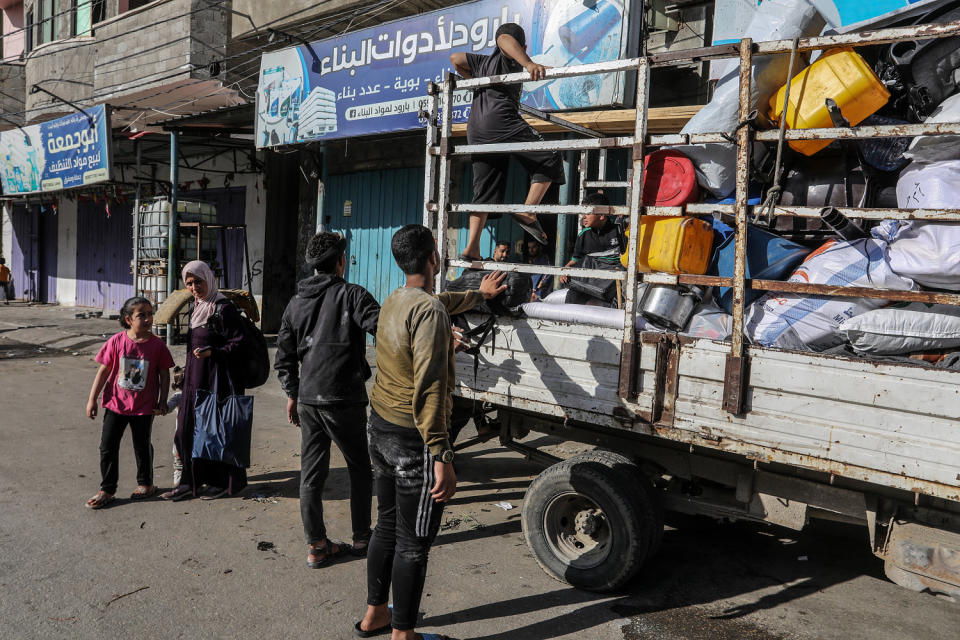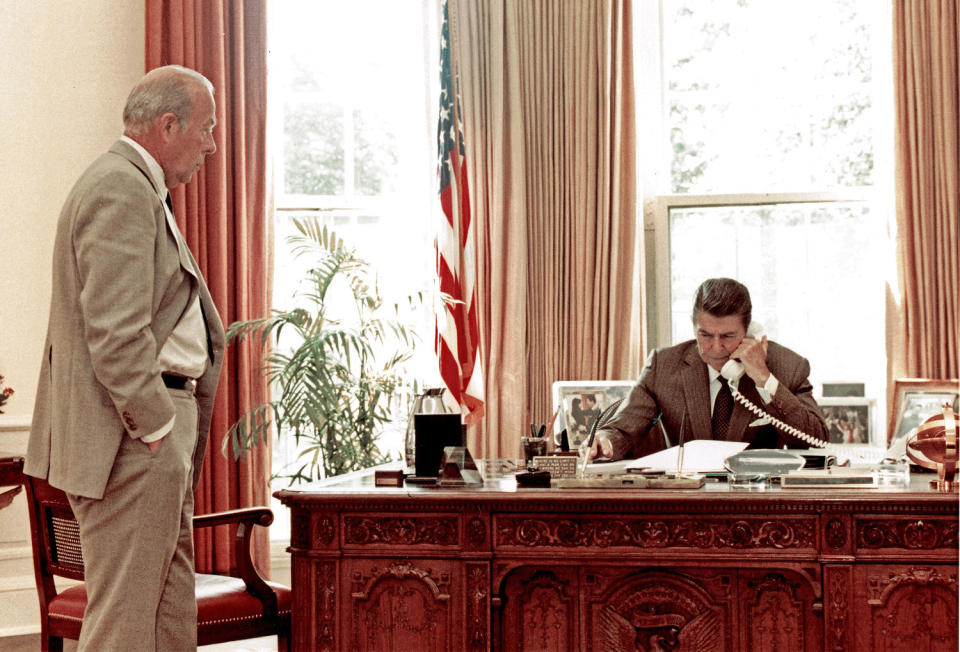Israel reacted with a mix of concern and fury Thursday to President Joe Biden‘s warning that he would cut off weapons to the U.S. ally’s military if it moves forward with a full-scale assault on Rafah, the city in southern Gaza where more than 1 million Palestinians are sheltering.
The threat, which marked a shift in Washington’s public approach to the war, came after the Biden administration halted a shipment of bombs last week amid concerns over Israel’s plans to invade Rafah even as cease-fire talks continue with Hamas. The U.S. has long supplied weapons to Israel, and Biden’s warning follows months of growing tensions between the two countries and as the president faces domestic pressure to take a harder line on the war.
Israeli officials appeared in little doubt that the fallout could have far-reaching consequences.
The country’s ambassador to the United Nations, Gilad Erdan, said the U.S. pause was “a very disappointing decision, even frustrating.” He suggested in an interview with Israeli Channel 12 TV news that the move stemmed from pressure Biden felt from both Congress and U.S. college campus protests.
“Israel will continue to fight Hamas until its destruction,” Israeli Foreign Affairs Minister Israel Katz said on X in an apparent response to Biden’s threat. “There is no just war like this one.”

Israeli Prime Minister Benjamin Netanyahu refrained from directly commenting on Biden’s remarks, but on Thursday afternoon, he reposted a video on X from a speech he delivered earlier this week saying: “If Israel is forced to stand alone, Israel will stand alone.”
Members of his far-right government were quick to express their outrage over the threat.
Right-wing National Security Minister Itamar Ben-Gvir issued a short but scathing response in a post on X. “Hamas ❤️ Biden,” he said. His office did not immediately respond to a request for further comment from NBC News.
Hamas ❤️Biden
— איתמר בן גביר (@itamarbengvir) May 9, 2024
Israeli Finance Minister Bezalel Smotrich, who leads the ultranationalist Religious Zionist Party, accused Biden of an “arms embargo,” writing in a thread posted to X that Israel would “achieve complete victory in this war despite President Biden’s push back.”
“We simply have no choice as this war is an existential one and anything other than complete victory will put the existence of the Jewish state in danger,” Smotrich said.
The country’s president, Isaac Herzog, sought to temper the backlash in comments appearing to admonish the right-wing ministers.
Thanking Biden for being a “great friend of the State of Israel,” he said: “Even when there are disagreements and moments of disappointment between friends and allies, there is a way to clarify the disputes and it is beholden upon all of us to avoid baseless, irresponsible and insulting statements and tweets that harm the national security and the interests of the State of Israel.”
Israeli military experts also expressed concern over Biden’s announcement, however.
Kobi Michael, a senior researcher at the Tel Aviv-based Institute for National Security Studies, said he had “difficulty in understanding” Biden’s approach.
“He is committed to the security of Israel by supplying Iron Dome and Arrow interceptors … but not sophisticated 2,000-pound bombs that will enable to IDF to attack Hamas,” he told NBC News. “What does it mean?”
“Israel is allowed to defend itself only from its ground by intercepting rockets and missiles but it is not allowed to defend itself by attacking the source and generators of terrorism in Gaza or other places?” Michael said Wednesday morning.
In a phone interview on Tuesday before Biden’s comments, Michael said the U.S. decision to halt a shipment of weapons was already a “troubling signal” that reflected the “depth of the tension between Israel and the U.S.”


An Israeli official told NBC News there were deep frustrations within the Israeli government over the Biden administration’s decision to withhold the shipment, which included 2,000-pound bombs the U.S. was concerned would be used to deadly effect in a dense urban area.
“Civilians have been killed in Gaza as a consequence of those bombs and other ways in which they go after population centers,” Biden said in his interview on CNN Wednesday when asked about the blocked shipment.
His administration has faced mounting scrutiny for continuing to send weapons to Israel despite the growing death toll in the enclave, and there has been little transparency in the volume of munitions the U.S. has sent to Israel since the start of the war seven months ago.
But Israel already has a significant arsenal, so the paused arms transfer would be unlikely to stop any expanded military offensive in Rafah, said Atlantic Council fellow and military intelligence expert Alex Plitsas. The decision was largely “symbolic,” he suggested in a phone interview Wednesday.
“It’s not really going to impact ground operations in Gaza,” he said, adding he believed the Biden administration ultimately wanted to “voice the displeasure” it felt over Israel’s plans. But he noted that if the trend were to continue, future halted shipments could have a more tangible impact on Israel’s operations in Gaza.
This would not be the first time the U.S. has withheld military aid from Israel.
In 1982, President Ronald Reagan imposed a six-year ban on cluster weapons sales to Israel following a Congressional probe that found Israel had used them in populated areas in its 1982 offensive in Lebanon.


Wednesday’s developments came as the Biden administration missed a deadline to submit a highly anticipated report to Congress on whether Israel is using U.S. weapons in accordance with international law.
It was not immediately clear when the report would be submitted to Congress or what impact it might have on Israel’s offensive in Gaza, in which more than 34,900 people have been killed, according to Palestinian health officials.
Israel launched its offensive after Hamas’ Oct. 7 attacks, in which some 1,200 people were killed and around 250 others were taken hostage into Gaza, according to Israeli officials. More than 130 hostages remain held in the enclave, with at least a quarter of them believed to be dead.
This article was originally published on NBCNews.com


